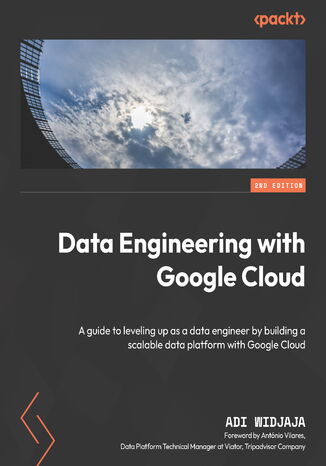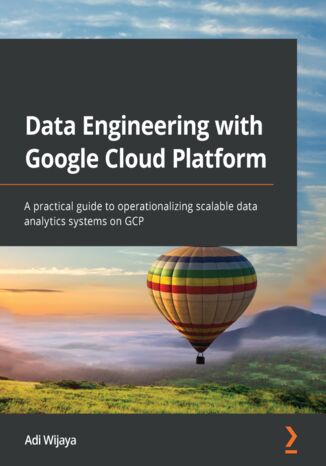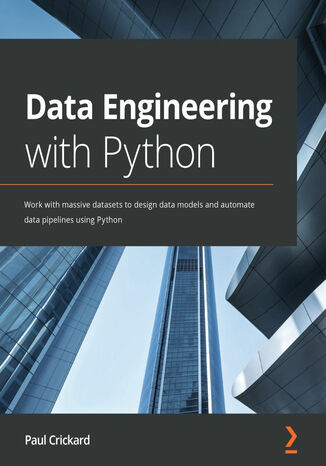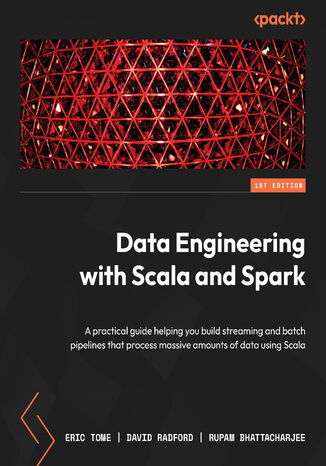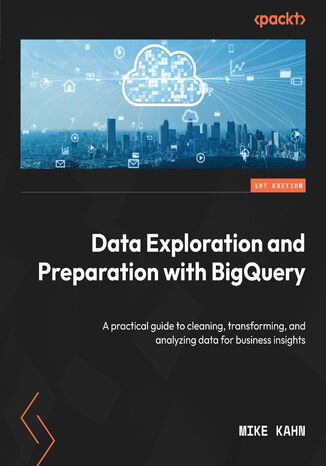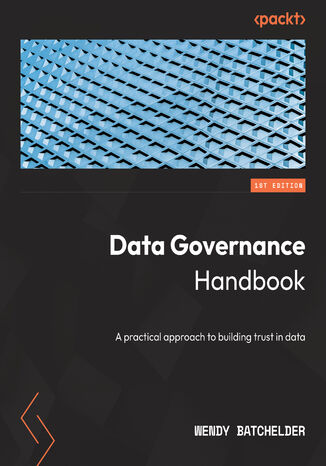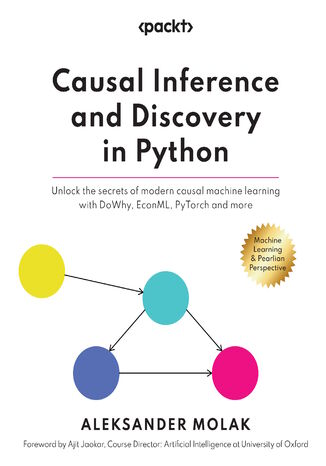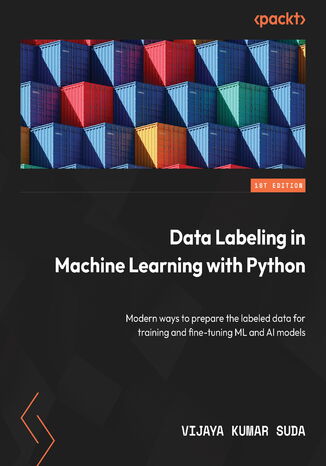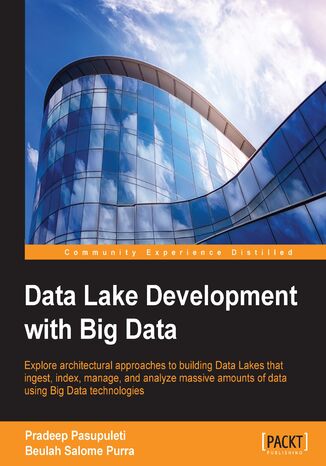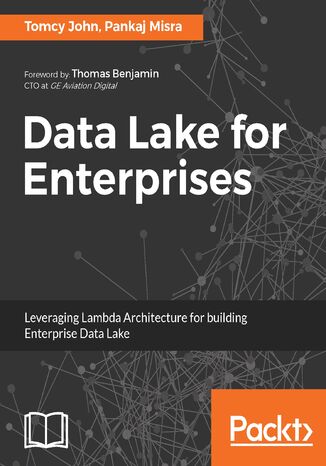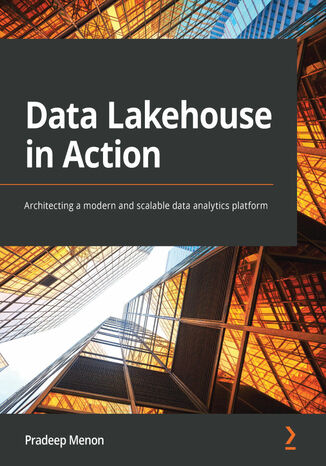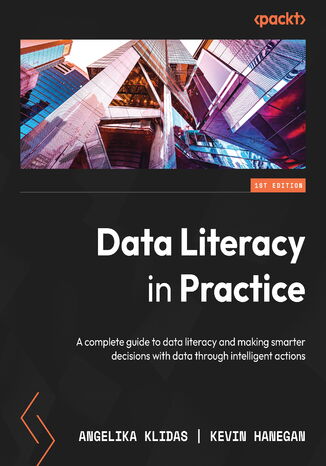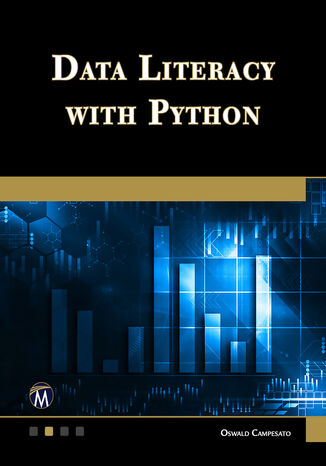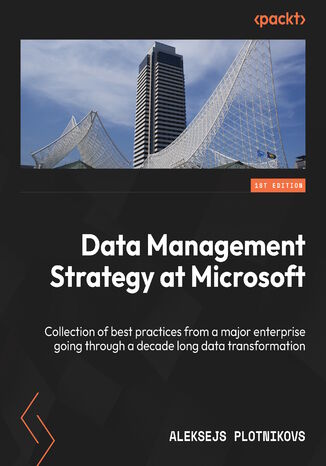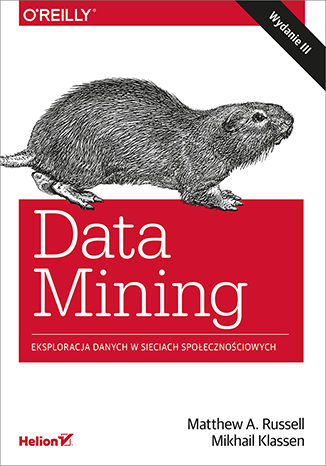Kategorien
E-Books
-
Wirtschaft
- Bitcoin
- Geschäftsfrau
- Coaching
- Controlling
- E-Business
- Ökonomie
- Finanzen
- Börse und Investitionen
- Persönliche Kompetenzen
- Computer im Büro
- Kommunikation und Verhandlungen
- Kleines Unternehmen
- Marketing
- Motivation
- Multimedia-Training
- Immobilien
- Überzeugung und NLP
- Steuern
- Sozialpolitik
- Handbȕcher
- Präsentationen
- Führung
- Public Relation
- Berichte, Analysen
- Geheimnis
- Social Media
- Verkauf
- Start-up
- Ihre Karriere
- Management
- Projektmanagement
- Personal (HR)
-
Für Kinder
-
Für Jugendliche
-
Bildung
-
Enzyklopädien, Wörterbücher
-
E-Presse
- Architektura i wnętrza
- Sicherheit und Gesundheit am Arbeitsplatz
- Biznes i Ekonomia
- Haus und Garten
- E-Business
- Ekonomia i finanse
- Esoterik
- Finanzen
- Persönliche Finanzen
- Unternehmen
- Fotografie
- Informatik
- HR und Gehaltsabrechnung
- Frauen
- Computer, Excel
- Buchhaltung
- Kultur und Literatur
- Wissenschaftlich und akademisch
- Umweltschutz
- meinungsbildend
- Bildung
- Steuern
- Reisen
- Psychologie
- Religion
- Landwirtschaft
- Buch- und Pressemarkt
- Transport und Spedition
- Gesundheit und Schönheit
-
Geschichte
-
Informatik
- Office-Programme
- Datenbank
- Bioinformatik
- IT Branche
- CAD/CAM
- Digital Lifestyle
- DTP
- Elektronik
- Digitale Fotografie
- Computergrafik
- Spiele
- Hacking
- Hardware
- IT w ekonomii
- Wissenschaftliche Pakete
- Schulbücher
- Computergrundlagen
- Programmierung
- Mobile-Programmierung
- Internet-Server
- Computernetzwerke
- Start-up
- Betriebssysteme
- Künstliche Inteligenz
- Technik für Kinder
- Webmaster
-
Andere
-
Fremdsprachen lernen
-
Kultur und Kunst
-
Lektüre
-
Literatur
- Anthologien
- Ballade
- Biografien und Autobiografien
- Für Erwachsene
- Drama
- Tagebücher, Memoiren, Briefe
- Epos
- Essay
- Science Fiction
- Felietonys
- Fiktion
- Humor, Satire
- Andere
- Klassisch
- Krimi
- Sachbücher
- Belletristik
- Mity i legendy
- Nobelpreisträger
- Kurzgeschichten
- Gesellschaftlich
- Okultyzm i magia
- Erzählung
- Erinnerungen
- Reisen
- Gedicht
- Poesie
- Politik
- Populärwissenschaftlich
- Roman
- Historischer Roman
- Prosa
- Abenteuer
- Journalismus
- Reportage
- Romans i literatura obyczajowa
- Sensation
- Thriller, Horror
- Interviews und Erinnerungen
-
Naturwissenschaften
-
Sozialwissenschaften
-
Schulbücher
-
Populärwissenschaft und akademisch
- Archäologie
- Bibliotekoznawstwo
- Filmwissenschaft
- Philologie
- Polnische Philologie
- Philosophie
- Finanse i bankowość
- Erdkunde
- Wirtschaft
- Handel. Weltwirtschaft
- Geschichte und Archäologie
- Kunst- und Architekturgeschichte
- Kulturwissenschaft
- Linguistik
- Literaturwissenschaft
- Logistik
- Mathematik
- Medizin
- Geisteswissenschaften
- Pädagogik
- Lehrmittel
- Populärwissenschaftlich
- Andere
- Psychologie
- Soziologie
- Theatrologie
- Teologie
- Theorien und Wirtschaftswissenschaften
- Transport i spedycja
- Sportunterricht
- Zarządzanie i marketing
-
Handbȕcher
-
Spielanleitungen
-
Professioneller und fachkundige Leitfaden
-
Jura
- Sicherheit und Gesundheit am Arbeitsplatz
- Geschichte
- Verkehrsregeln. Führerschein
- Rechtswissenschaften
- Gesundheitswesen
- Allgemeines. Wissenskompendium
- akademische Bücher
- Andere
- Bau- und Wohnungsrecht
- Zivilrecht
- Finanzrecht
- Wirtschaftsrecht
- Wirtschafts- und Handelsrecht
- Strafrecht
- Strafrecht. Kriminelle Taten. Kriminologie
- Internationales Recht
- Internationales und ausländisches Recht
- Gesundheitsschutzgesetz
- Bildungsrecht
- Steuerrecht
- Arbeits- und Sozialversicherungsrecht
- Öffentliches, Verfassungs- und Verwaltungsrecht
- Familien- und Vormundschaftsrecht
- Agrarrecht
- Sozialrecht, Arbeitsrecht
- EU-Recht
- Industrie
- Agrar- und Umweltschutz
- Wörterbücher und Enzyklopädien
- Öffentliche Auftragsvergabe
- Management
-
Führer und Reisen
- Afrika
- Alben
- Südamerika
- Mittel- und Nordamerika
- Australien, Neuseeland, Ozeanien
- Österreich
- Asien
- Balkan
- Naher Osten
- Bulgarien
- China
- Kroatien
- Tschechische Republik
- Dänemark
- Ägypten
- Estland
- Europa
- Frankreich
- Berge
- Griechenland
- Spanien
- Niederlande
- Island
- Litauen
- Lettland
- Mapy, Plany miast, Atlasy
- Miniführer
- Deutschland
- Norwegen
- Aktive Reisen
- Polen
- Portugal
- Andere
- Przewodniki po hotelach i restauracjach
- Russland
- Rumänien
- Slowakei
- Slowenien
- Schweiz
- Schweden
- Welt
- Türkei
- Ukraine
- Ungarn
- Großbritannien
- Italien
-
Psychologie
- Lebensphilosophien
- Kompetencje psychospołeczne
- zwischenmenschliche Kommunikation
- Mindfulness
- Allgemeines
- Überzeugung und NLP
- Akademische Psychologie
- Psychologie von Seele und Geist
- Arbeitspsychologie
- Relacje i związki
- Elternschafts- und Kinderpsychologie
- Problemlösung
- Intellektuelle Entwicklung
- Geheimnis
- Sexualität
- Verführung
- Aussehen ind Image
- Lebensphilosophien
-
Religion
-
Sport, Fitness, Diäten
-
Technik und Mechanik
Hörbücher
-
Wirtschaft
- Bitcoin
- Geschäftsfrau
- Coaching
- Controlling
- E-Business
- Ökonomie
- Finanzen
- Börse und Investitionen
- Persönliche Kompetenzen
- Kommunikation und Verhandlungen
- Kleines Unternehmen
- Marketing
- Motivation
- Immobilien
- Überzeugung und NLP
- Steuern
- Sozialpolitik
- Handbȕcher
- Präsentationen
- Führung
- Public Relation
- Geheimnis
- Social Media
- Verkauf
- Start-up
- Ihre Karriere
- Management
- Projektmanagement
- Personal (HR)
-
Für Kinder
-
Für Jugendliche
-
Bildung
-
Enzyklopädien, Wörterbücher
-
E-Presse
-
Geschichte
-
Informatik
-
Andere
-
Fremdsprachen lernen
-
Kultur und Kunst
-
Lektüre
-
Literatur
- Anthologien
- Ballade
- Biografien und Autobiografien
- Für Erwachsene
- Drama
- Tagebücher, Memoiren, Briefe
- Epos
- Essay
- Science Fiction
- Felietonys
- Fiktion
- Humor, Satire
- Andere
- Klassisch
- Krimi
- Sachbücher
- Belletristik
- Mity i legendy
- Nobelpreisträger
- Kurzgeschichten
- Gesellschaftlich
- Okultyzm i magia
- Erzählung
- Erinnerungen
- Reisen
- Poesie
- Politik
- Populärwissenschaftlich
- Roman
- Historischer Roman
- Prosa
- Abenteuer
- Journalismus
- Reportage
- Romans i literatura obyczajowa
- Sensation
- Thriller, Horror
- Interviews und Erinnerungen
-
Naturwissenschaften
-
Sozialwissenschaften
-
Populärwissenschaft und akademisch
- Archäologie
- Philosophie
- Wirtschaft
- Handel. Weltwirtschaft
- Geschichte und Archäologie
- Kunst- und Architekturgeschichte
- Kulturwissenschaft
- Literaturwissenschaft
- Mathematik
- Medizin
- Geisteswissenschaften
- Pädagogik
- Lehrmittel
- Populärwissenschaftlich
- Andere
- Psychologie
- Soziologie
- Teologie
- Zarządzanie i marketing
-
Handbȕcher
-
Professioneller und fachkundige Leitfaden
-
Jura
-
Führer und Reisen
-
Psychologie
- Lebensphilosophien
- zwischenmenschliche Kommunikation
- Mindfulness
- Allgemeines
- Überzeugung und NLP
- Akademische Psychologie
- Psychologie von Seele und Geist
- Arbeitspsychologie
- Relacje i związki
- Elternschafts- und Kinderpsychologie
- Problemlösung
- Intellektuelle Entwicklung
- Geheimnis
- Sexualität
- Verführung
- Aussehen ind Image
- Lebensphilosophien
-
Religion
-
Sport, Fitness, Diäten
-
Technik und Mechanik
Videokurse
-
Datenbank
-
Big Data
-
Biznes, ekonomia i marketing
-
Cybersicherheit
-
Data Science
-
DevOps
-
Für Kinder
-
Elektronik
-
Grafik / Video / CAX
-
Spiele
-
Microsoft Office
-
Entwicklungstools
-
Programmierung
-
Persönliche Entwicklung
-
Computernetzwerke
-
Betriebssysteme
-
Softwaretest
-
Mobile Geräte
-
UX/UI
-
Web development
-
Management
Podcasts
The second edition of Data Engineering with Google Cloud builds upon the success of the first edition by offering enhanced clarity and depth to data professionals navigating the intricate landscape of data engineering.Beyond its foundational lessons, this new edition delves into the essential realm of data governance within Google Cloud, providing you with invaluable insights into managing and optimizing data resources effectively. Written by a Data Strategic Cloud Engineer at Google, this book helps you stay ahead of the curve by guiding you through the latest technological advancements in the Google Cloud ecosystem. You’ll cover essential aspects, from exploring Cloud Composer 2 to the evolution of Airflow 2.5. Additionally, you’ll explore how to work with cutting-edge tools like Dataform, DLP, Dataplex, Dataproc Serverless, and Datastream to perform data governance on datasets.By the end of this book, you'll be equipped to navigate the ever-evolving world of data engineering on Google Cloud, from foundational principles to cutting-edge practices.
With this book, you'll understand how the highly scalable Google Cloud Platform (GCP) enables data engineers to create end-to-end data pipelines right from storing and processing data and workflow orchestration to presenting data through visualization dashboards.Starting with a quick overview of the fundamental concepts of data engineering, you'll learn the various responsibilities of a data engineer and how GCP plays a vital role in fulfilling those responsibilities. As you progress through the chapters, you'll be able to leverage GCP products to build a sample data warehouse using Cloud Storage and BigQuery and a data lake using Dataproc. The book gradually takes you through operations such as data ingestion, data cleansing, transformation, and integrating data with other sources. You'll learn how to design IAM for data governance, deploy ML pipelines with the Vertex AI, leverage pre-built GCP models as a service, and visualize data with Google Data Studio to build compelling reports. Finally, you'll find tips on how to boost your career as a data engineer, take the Professional Data Engineer certification exam, and get ready to become an expert in data engineering with GCP.By the end of this data engineering book, you'll have developed the skills to perform core data engineering tasks and build efficient ETL data pipelines with GCP.
Data engineering provides the foundation for data science and analytics, and forms an important part of all businesses. This book will help you to explore various tools and methods that are used for understanding the data engineering process using Python.The book will show you how to tackle challenges commonly faced in different aspects of data engineering. You’ll start with an introduction to the basics of data engineering, along with the technologies and frameworks required to build data pipelines to work with large datasets. You’ll learn how to transform and clean data and perform analytics to get the most out of your data. As you advance, you'll discover how to work with big data of varying complexity and production databases, and build data pipelines. Using real-world examples, you’ll build architectures on which you’ll learn how to deploy data pipelines.By the end of this Python book, you’ll have gained a clear understanding of data modeling techniques, and will be able to confidently build data engineering pipelines for tracking data, running quality checks, and making necessary changes in production.
Eric Tome, Rupam Bhattacharjee, David Radford
Most data engineers know that performance issues in a distributed computing environment can easily lead to issues impacting the overall efficiency and effectiveness of data engineering tasks. While Python remains a popular choice for data engineering due to its ease of use, Scala shines in scenarios where the performance of distributed data processing is paramount.This book will teach you how to leverage the Scala programming language on the Spark framework and use the latest cloud technologies to build continuous and triggered data pipelines. You’ll do this by setting up a data engineering environment for local development and scalable distributed cloud deployments using data engineering best practices, test-driven development, and CI/CD. You’ll also get to grips with DataFrame API, Dataset API, and Spark SQL API and its use. Data profiling and quality in Scala will also be covered, alongside techniques for orchestrating and performance tuning your end-to-end pipelines to deliver data to your end users. By the end of this book, you will be able to build streaming and batch data pipelines using Scala while following software engineering best practices.
Data professionals encounter a multitude of challenges such as handling large volumes of data, dealing with data silos, and the lack of appropriate tools. Datasets often arrive in different conditions and formats, demanding considerable time from analysts, engineers, and scientists to process and uncover insights. The complexity of the data life cycle often hinders teams and organizations from extracting the desired value from their data assets. Data Exploration and Preparation with BigQuery offers a holistic solution to these challenges.The book begins with the basics of BigQuery while covering the fundamentals of data exploration and preparation. It then progresses to demonstrate how to use BigQuery for these tasks and explores the array of big data tools at your disposal within the Google Cloud ecosystem.The book doesn’t merely offer theoretical insights; it’s a hands-on companion that walks you through properly structuring your tables for query efficiency and ensures adherence to data preparation best practices. You’ll also learn when to use Dataflow, BigQuery, and Dataprep for ETL and ELT workflows. The book will skillfully guide you through various case studies, demonstrating how BigQuery can be used to solve real-world data problems.By the end of this book, you’ll have mastered the use of SQL to explore and prepare datasets in BigQuery, unlocking deeper insights from data.
Data Forecasting and Segmentation Using Microsoft Excel guides you through basic statistics to test whether your data can be used to perform regression predictions and time series forecasts. The exercises covered in this book use real-life data from Kaggle, such as demand for seasonal air tickets and credit card fraud detection.You’ll learn how to apply the grouping K-means algorithm, which helps you find segments of your data that are impossible to see with other analyses, such as business intelligence (BI) and pivot analysis. By analyzing groups returned by K-means, you’ll be able to detect outliers that could indicate possible fraud or a bad function in network packets.By the end of this Microsoft Excel book, you’ll be able to use the classification algorithm to group data with different variables. You’ll also be able to train linear and time series models to perform predictions and forecasts based on past data.
Data Governance Handbook. A practical approach to building trust in data
2.5 quintillion bytes! This is the amount of data being generated every single day across the globe. As this number continues to grow, understanding and managing data becomes more complex. Data professionals know that it’s their responsibility to navigate this complexity and ensure effective governance, empowering businesses with the right data, at the right time, and with the right controls.If you are a data professional, this book will equip you with valuable guidance to conquer data governance complexities with ease. Written by a three-time chief data officer in global Fortune 500 companies, the Data Governance Handbook is an exhaustive guide to understanding data governance, its key components, and how to successfully position solutions in a way that translates into tangible business outcomes.By the end, you’ll be able to successfully pitch and gain support for your data governance program, demonstrating tangible outcomes that resonate with key stakeholders.
Data Ingestion with Python Cookbook offers a practical approach to designing and implementing data ingestion pipelines. It presents real-world examples with the most widely recognized open source tools on the market to answer commonly asked questions and overcome challenges.You’ll be introduced to designing and working with or without data schemas, as well as creating monitored pipelines with Airflow and data observability principles, all while following industry best practices. The book also addresses challenges associated with reading different data sources and data formats. As you progress through the book, you’ll gain a broader understanding of error logging best practices, troubleshooting techniques, data orchestration, monitoring, and storing logs for further consultation.By the end of the book, you’ll have a fully automated set that enables you to start ingesting and monitoring your data pipeline effortlessly, facilitating seamless integration with subsequent stages of the ETL process.
Data labeling is the invisible hand that guides the power of artificial intelligence and machine learning. In today’s data-driven world, mastering data labeling is not just an advantage, it’s a necessity. Data Labeling in Machine Learning with Python empowers you to unearth value from raw data, create intelligent systems, and influence the course of technological evolution.With this book, you'll discover the art of employing summary statistics, weak supervision, programmatic rules, and heuristics to assign labels to unlabeled training data programmatically. As you progress, you'll be able to enhance your datasets by mastering the intricacies of semi-supervised learning and data augmentation. Venturing further into the data landscape, you'll immerse yourself in the annotation of image, video, and audio data, harnessing the power of Python libraries such as seaborn, matplotlib, cv2, librosa, openai, and langchain. With hands-on guidance and practical examples, you'll gain proficiency in annotating diverse data types effectively.By the end of this book, you’ll have the practical expertise to programmatically label diverse data types and enhance datasets, unlocking the full potential of your data.
Pradeep Pasupuleti, Beulah Salome Purra
A Data Lake is a highly scalable platform for storing huge volumes of multistructured data from disparate sources with centralized data management services. This book explores the potential of Data Lakes and explores architectural approaches to building data lakes that ingest, index, manage, and analyze massive amounts of data using batch and real-time processing frameworks. It guides you on how to go about building a Data Lake that is managed by Hadoop and accessed as required by other Big Data applications.This book will guide readers (using best practices) in developing Data Lake's capabilities. It will focus on architect data governance, security, data quality, data lineage tracking, metadata management, and semantic data tagging. By the end of this book, you will have a good understanding of building a Data Lake for Big Data.
Data Lake for Enterprises. Lambda Architecture for building enterprise data systems
Vivek Mishra, Tomcy John, Pankaj Misra
The term Data Lake has recently emerged as a prominent term in the big data industry. Data scientists can make use of it in deriving meaningful insights that can be used by businesses to redefine or transform the way they operate. Lambda architecture is also emerging as one of the very eminent patterns in the big data landscape, as it not only helps to derive useful information from historical data but also correlates real-time data to enable business to take critical decisions. This book tries to bring these two important aspects — data lake and lambda architecture—together.This book is divided into three main sections. The first introduces you to the concept of data lakes, the importance of data lakes in enterprises, and getting you up-to-speed with the Lambda architecture. The second section delves into the principal components of building a data lake using the Lambda architecture. It introduces you to popular big data technologies such as Apache Hadoop, Spark, Sqoop, Flume, and ElasticSearch. The third section is a highly practical demonstration of putting it all together, and shows you how an enterprise data lake can be implemented, along with several real-world use-cases. It also shows you how other peripheral components can be added to the lake to make it more efficient.By the end of this book, you will be able to choose the right big data technologies using the lambda architectural patterns to build your enterprise data lake.
Data Lakehouse in Action. Architecting a modern and scalable data analytics platform
The Data Lakehouse architecture is a new paradigm that enables large-scale analytics. This book will guide you in developing data architecture in the right way to ensure your organization's success.The first part of the book discusses the different data architectural patterns used in the past and the need for a new architectural paradigm, as well as the drivers that have caused this change. It covers the principles that govern the target architecture, the components that form the Data Lakehouse architecture, and the rationale and need for those components. The second part deep dives into the different layers of Data Lakehouse. It covers various scenarios and components for data ingestion, storage, data processing, data serving, analytics, governance, and data security. The book's third part focuses on the practical implementation of the Data Lakehouse architecture in a cloud computing platform. It focuses on various ways to combine the Data Lakehouse pattern to realize macro-patterns, such as Data Mesh and Data Hub-Spoke, based on the organization's needs and maturity level. The frameworks introduced will be practical and organizations can readily benefit from their application.By the end of this book, you'll clearly understand how to implement the Data Lakehouse architecture pattern in a scalable, agile, and cost-effective manner.
Angelika Klidas, Kevin Hanegan
Data is more than a mere commodity in our digital world. It is the ebb and flow of our modern existence. Individuals, teams, and enterprises working with data can unlock a new realm of possibilities. And the resultant agility, growth, and inevitable success have one origin—data literacy.This comprehensive guide is written by two data literacy pioneers, each with a thorough footprint within the data and analytics commercial world and lectures at top universities in the US and the Netherlands. Complete with best practices, practical models, and real-world examples, Data Literacy in Practice will help you start making your data work for you by building your understanding of data literacy basics and accelerating your journey to independently uncovering insights.You’ll learn the four-pillar model that underpins all data and analytics and explore concepts such as measuring data quality, setting up a pragmatic data management environment, choosing the right graphs for your readers, and questioning your insights.By the end of the book, you'll be equipped with a combination of skills and mindset as well as with tools and frameworks that will allow you to find insights and meaning within your data for data-informed decision making.
Data Literacy With Python. A Comprehensive Guide to Understanding and Analyzing Data with Python
Mercury Learning and Information, Oswald Campesato
This book ushers readers into the world of data, emphasizing its importance in modern industries and how its management leads to insightful decision-making. Using Python 3, the book introduces foundational data tasks and progresses to advanced model training concepts. Detailed, step-by-step Python examples help readers master training models, starting with the kNN algorithm and moving to other classifiers with minimal code adjustments. Tools like Sweetviz, Skimpy, Matplotlib, and Seaborn are introduced for hands-on chart and graph rendering.The course begins with working with data, detecting outliers and anomalies, and cleaning datasets. It then introduces statistics and progresses to using Matplotlib and Seaborn for data visualization. Each chapter builds on the previous one, ensuring a comprehensive understanding of data management and analysis.These concepts are crucial for making data-driven decisions. This book transitions readers from basic data handling to advanced model training, blending theoretical knowledge with practical skills. Companion files with source code and data sets enhance the learning experience, making this book an invaluable resource for mastering data science with Python.
Microsoft pioneered data innovation and investment ahead of many in the industry, setting a remarkable standard for data maturity. Written by a data leader with over 15 years of experience following Microsoft’s data journey, this book delves into every crucial aspect of this journey, including change management, aligning with business needs, enhancing data value, and cultivating a data-driven culture.This book emphasizes that success in a data-driven enterprise goes beyond relying solely on modern technology and highlights the importance of prioritizing genuine business needs to propel necessary modernizations through change management practices. You’ll see how data-driven innovation does not solely reside within central IT engineering teams but also among the data's business owners who rely on data daily for their operational needs. This guide empower these professionals with clean, easily discoverable, and business-ready data, marking a significant breakthrough in how data is perceived and utilized throughout an enterprise. You’ll also discover advanced techniques to nurture the value of data as unique intellectual property, and differentiate your organization with the power of data.Its storytelling approach and summary of essential insights at the end of each chapter make this book invaluable for business and data leaders to advocate for crucial data investments.
Data Mining. Eksploracja danych w sieciach społecznościowych. Wydanie III
Matthew A. Russell, Mikhail Klassen
Internetu nie można rozważać wyłącznie jako tworu techniki. Powstanie tej sieci doprowadziło do rozwoju różnych zjawisk społecznych. Z tej perspektywy na szczególną uwagę zasługują media społecznościowe. Są źródłem informacji, które, właściwie spożytkowane, mogą przynieść niezły dochód. Mogą też dać odpowiedzi na wiele pytań zadawanych przez naukowców z różnych branż. Sama eksploracja tych danych przynosi sporo satysfakcji i radości. Zaskakujące przy tym jest to, że przygotowanie zestawu potrzebnych narzędzi i nauka posługiwania się nimi zabiera naprawdę niewiele czasu i nie wymaga specjalnych talentów! To trzecie, zaktualizowane wydanie popularnego podręcznika dla osób, które chcą zająć się wydobywaniem danych z sieci społecznościowych. Uwzględniono tu zmiany interfejsów API wprowadzone do poszczególnych platform i dodano rozdział o eksploracji Instagrama. Dowiesz się, jak dzięki danym z mediów społecznościowych określić sieć powiązań użytkowników, zorientować się, kto o czym mówi i gdzie się znajduje. Treść bogato zilustrowano przykładami kodu w Pythonie, a także plikami Jupyter Notebook lub kontenerów Dockera. Ciekawym elementem książki jest zbiór receptur dotyczących rozwiązywania konkretnych problemów z Twitterem. W tej książce między innymi: wprowadzenie do świata mediów społecznościowych przybliżenie bogactwa danych zawartych w mediach społecznościowych eksploracja danych za pomocą narzędzi Pythona 3 zaawansowane techniki eksploracji danych, w tym współczynniki TFIDF, podobieństwo kosinusów i rozpoznawanie obrazów tworzenie wizualizacji pozyskanych danych Jakie informacje dziś znajdziesz dzięki danym z Facebooka?

